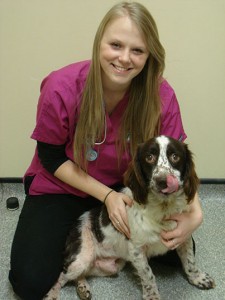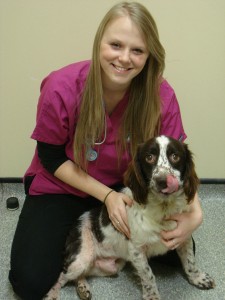The Royal College of Veterinary Surgeons (RCVS) is seeking the views of vets, veterinary nurses and members of the public regarding proposals for a new Royal Charter which would clarify and underpin the role of the College and give it formal recognition as regulator of the veterinary nursing profession.
The new Charter, approved at a meeting of RCVS Council in November, would replace the 1967 Supplemental Charter, with the most far reaching change being a proposal to make veterinary nursing a formally regulated profession on a similar footing to veterinary surgeons. Veterinary nurses would become associates of the College and have the post-nominal letters RVN. The List and the Register of Veterinary Nurses would also be effectively combined, meaning that the 1,100 listed veterinary nurses would join the 10,500 already on the Register.
Under the proposals registered veterinary nurses would continue to need to fulfil certain responsibilities, including abiding by the Code of Professional Conduct and completing an average of 15 hours a year of continuing professional development, and would be subject to RCVS disciplinary procedures.
What’s new is that individuals struck off from the Register for serious professional misconduct would no longer be able to give medical treatment or carry out minor surgery under veterinary direction.
As well as changes to the regulation of veterinary nursing, the proposed Charter would also more clearly state the role and remit of the RCVS, for example, in advancing standards through the promotion of continuing professional development and the Practice Standards Scheme.
Professor Stephen May, a member of RCVS Council who led the Legislation Working Party that developed the new Charter proposals, said: “The proposed new Charter represents an historic opportunity to affirm the role of the RCVS, and to provide a modern framework for the future regulation of the professions. I call on veterinary surgeons and nurses, together with other interested stakeholders, to read the consultation documents and support our proposals.”
Speaking about the need for change, RCVS President Neil Smith added: “The consultation paper explains why it is time to replace the 1967 Charter with a new version which sets out the role of the College. The present Charter doesn’t explain what objects the RCVS should set out to achieve, and it is silent about veterinary nurses. The remit of the College should include being the regulator for the veterinary nursing profession, and we want a new Charter to recognise registered veterinary nurses.
“We hope that the new Charter will provide a solid basis for the work of the College for years to come. We would urge members of the professions and the public to let us know what they think and help us to make sure that we have got it right.”
The consultation paper, which contains further details about the proposed Charter, is available to download. Those who wish to have their say must respond to b.myring@rcvs.org.uk with their comments by Friday 7 February 2014.
The RCVS will also be organising a meeting and a webinar during the consultation period for those who wish to ask questions about the proposals. Those interested in attending a meeting should email b.myring@rcvs.org.uk. The webinar will be held early in 2014 – further details are available on the RCVS website.







